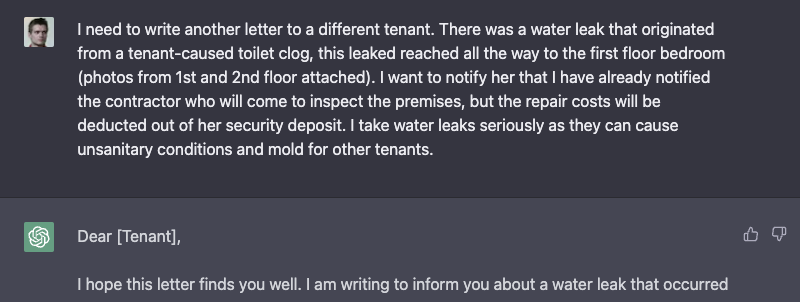What is this ChatGPT thing?
Generative AI is an exciting and rapidly evolving field of artificial intelligence that involves training computers to generate new content, such as text, images, and even music. This technology has the potential to transform many industries, from entertainment and journalism to healthcare and education.
One of the most well-known examples of generative AI is ChatGPT, a language model developed by OpenAI. ChatGPT is capable of generating coherent and contextually relevant responses to a wide range of conversational prompts, from casual small talk to technical questions about science and technology. The model has been trained on vast amounts of text data, specifically 45 terabytes of text from the internet and other sources. This is equivalent to more than 100 million books, or over 10 times the amount of text in the entire English-language Wikipedia.

But how does generative AI work? At its core, generative AI relies on deep learning models that can learn from large amounts of data and use that knowledge to generate new content. One of the most important breakthroughs in this field has been the development of transformer models, which have proven to be particularly effective at generating high-quality content. Transformers are a type of neural network that can learn to encode and decode sequences of data, such as text or images, by attending to different parts of the input data and generating outputs that are structured and coherent.
Thanks to recent advances in machine learning, generative AI has made remarkable progress in the last few years. In fact, the quality of text generated by state-of-the-art language models like ChatGPT has improved by over 1,000 times in just five years. This is due to a combination of factors, including the availability of larger and more diverse datasets, the development of more powerful hardware and software, and improvements in training algorithms and techniques.
One of the most exciting applications of generative AI is in natural language processing (NLP), which involves teaching machines to understand and generate human language. With the development of powerful language models like ChatGPT, we can now generate text that is almost indistinguishable from text written by a human. This has huge implications for a wide range of industries, from customer service and chatbots to content creation and translation.
Generative AI is a rapidly evolving field that has the potential to transform many aspects of our lives. With the development of powerful deep learning models like transformers and the widespread availability of large amounts of data, we are only beginning to scratch the surface of what is possible with generative AI. As this technology continues to develop and mature, we can expect to see many exciting new applications emerge that will change the way we live, work, and interact with each other.
Here at Investomation, for example, we've already started using ChatGPT to help automate menial tasks. We've been using it to generate boilerplate around our communication with tenants. This includes generating violation notices, roommate agreements, and other important documents. By automating these routine tasks, we not only save time for ourselves but also ensure that all communication is consistent and professional.

Additionally, we use ChatGPT to generate one-off scripts for web scraping and data parsing, curation, and database entry. As you probably already know from our landing page, our data sources include the government and large PropTech companies like Redfin. This raw data is often messy, and formats change from year to year. While ChatGPT does not generate the best code, the code it does generate is often good enough to get started, especially for one-off scripts where the quality of code doesn't matter as much. We typically do a first pass through ChatGPT now and then have a human update/fix bugs in it. The result is that a script that would have previously taken a day to write now can be done in a couple hours. To enhance our productivity further, we also use Github Copilot which lets us "paint" code in based on intent.
In fact, that's probably the best way to describe ChatGPT. It takes your ideas and paints them into whatever boilerplate you want based on the millions of examples it has trained on. That means that your ultimate content is only as good as ideas you put in (garbage in, garbage out). For that reason, I'm not scared that ChatGPT will take our jobs. If anything, it will create jobs we can't even fathom yet, it will allow creative individuals to achieve more with less.